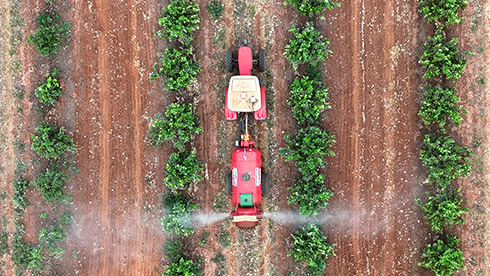In today’s competitive agricultural landscape, farmers are continuously seeking methods to enhance productivity while minimizing costs. At CHCNAV, we understand the importance of precision and efficiency in farming operations. One of the most significant advancements in this area is the implementation of automated steering systems. These systems not only improve accuracy in field operations but also contribute to sustainable agricultural practices.
The Importance of Precision in Farming
Precision farming is vital for maximizing crop yields and ensuring optimal resource use. With the rise of technology in agriculture, farmers have access to tools that allow them to monitor and manage their fields with greater accuracy. Automated steering systems play a crucial role in this process by enabling equipment to follow precise paths during fieldwork. This precision helps to minimize overlaps and gaps, ensuring that every inch of the field is utilized effectively.
Enhancing Efficiency with Automated Steering
Efficiency is another critical factor in modern farming operations. Traditional steering methods often lead to inconsistencies in fieldwork, which can result in wasted time and resources. Automated steering systems address this issue by ensuring that machinery follows straight and consistent paths. This level of automation means that farmers can complete tasks more quickly and with less manual intervention.
CHCNAV’s Contribution to Automated Steering
At CHCNAV, we offer advanced solutions that support automated steering in agricultural practices. Our NX612 system is a prime example of how technology can aid farmers in achieving their goals. This system supports multiple GNSS and PPP modes, delivering centimeter-level precision that is essential for effective farming.
The NX612 is designed to provide reliable performance in various field conditions, ensuring that farmers can depend on it regardless of their specific requirements. By integrating our automated steering technology, farmers can benefit from enhanced accuracy and efficiency, ultimately leading to better crop yields and reduced operational costs.
The Future of Automated Steering in Agriculture
As technology continues to evolve, the future of automated steering in agriculture looks promising. Innovations in GNSS technology, data analytics, and machine learning are likely to further enhance the capabilities of these systems. Farmers can expect even more precise measurements and insights, enabling them to make informed decisions that impact their operations positively.
Moreover, as environmental concerns become more pressing, the role of automated steering in promoting sustainable practices will be increasingly important. By reducing input waste and optimizing resource use, farmers can contribute to more sustainable agricultural practices while maintaining profitability.
Conclusion
Incorporating automated steering systems into farming operations presents a valuable opportunity for farmers to improve precision and efficiency. At CHCNAV, we are committed to providing innovative solutions that support these advancements in agriculture. By leveraging our technology, farmers can optimize their practices, reduce waste, and enhance crop yields, all while embracing sustainability. As we look to the future, we believe that automated steering will play a pivotal role in shaping the agricultural landscape, ensuring that farmers can meet the demands of a growing population while preserving the environment.

